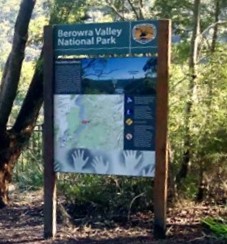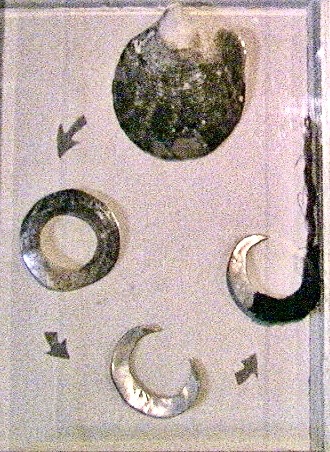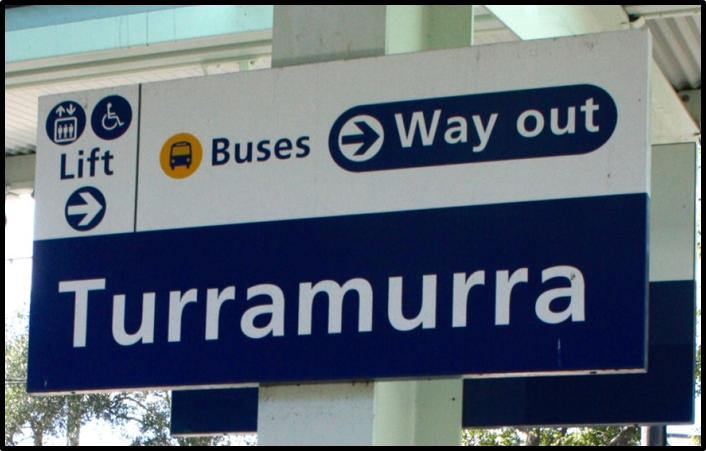Meaning of Berowra
- Jeremy Steele

- Aug 27, 2025
- 3 min read
Updated: Jan 29
Energy supply: when there is a power failure nothing at home works: the lights, the toaster, the microwave, the jug or anything else electrical. Some may recall the petrol strikes in the 1970s and 80s that threw domestic and commercial motor fleets into chaos: as each strike dragged on, drivers were forced to rely on only what was left in their fuel tanks. At the time of the First Fleet, the source of power for the fleet of sailing ships was winds. No wind—and a ship was becalmed. No wonder they were keen on wind at that time. Today wind is making a comeback as a renewable source of energy. But so it was that at the time of the First Fleet the English newcomers would enquire about names of winds from various points of the compass...
Australian | respelt | English | EngJSM | source |
“Boo-roo-way” | buruwayi | “He calls the four principal winds by the following names: The North” | wind north | King in Hunter [:413.25:25] [BB] [NSW] [1792] |
“Boor-roo-way” | buruwayi | “The North Wind” | wind north | Anon (c) [c:1:1] [BB] [NSW] [1790-91] |
"Puruwí Karingál" | buruwi garingal | “East [wind]” | wind east | Dawes (b) [b:2:3] [BB] [NSW] [1790-91] |
“Purr-a-mi” | bara-mayi | “North-west wind” | wind north-west | Tkld KRE c.1835 [137:30] [Kre] [nsw] [c.1835] |
“Broo-moi” | bara-mayi | “West [wind]” | wind west | Mann: Long Dick, c.1842 [3.2:21] [Gmrgl] [] [c.1842] |

The name of the suburb Berowra to the northwards of Sydney was long said to be ‘an Aboriginal word’ meaning ‘place of many winds’. This meaning is still given repeatedly on the internet, and in placenames books such as Kennedy, Brian and Barbara (1992) Australian Place Names, Rydalmere, N.S.W., Hodder and Stoughton (Australia) Pty Ltd. In such instances neither the particular language nor the source for such a claim is provided, although information in the table above, in which BB (for Biyal Biyal) in the source column denoted the classical Sydney language of the First Fleet days, may be the underlying reason.
Recently, however, as in the Dictionary of Sydney, and more specifically in Wikipedia, a new understanding of Berowra is gaining ground: “it actually means ‘place of many shells’ referring to the many shell middens on Berowra Creek”. It may have been local Hornsby historian Ralph Hawkins who first put forward this suggestion, which was taken up in the Guide to Berowra Valley Regional (now national) Park (p.6). For while Berowra is hardly more windy than anywhere else, it certainly does have shell middens in extensive profusion all along Berowra Creek.
And the original language records are even more compelling about this latter-day interpretation.
"P to D. Ngia ngirinarabaouwí nia berāra" | ngaya ngayiri-nara-ba-wi-nya birara | “I will go and fetch you some fish hooks (or the shells)” | I bring PURP will I thee fishhooks | Dawes (b) [b:29:14] [BB] [NSW] [1790-91] |
"Berá pars`bůgi ´" | bira barbaga-yi | “I have lost a fish hook” | fishhook lose did | Dawes (b) [b:17:12] [BB] [NSW] [1790-91] |
"Bur-ra" | bara | “A fish-hook” | fishhook | King in Hunter [:407.2:2] [BB] [NSW] |
"Bur-ra" | bara | “Fish Hook” | fishhook | Southwell [:147.2:29] [BB] [NSW] [1790-1] |
"barra" | bara | “a fish hook” | fishhook | Bowman: Camden [:21:119] [DG] [NSW] [1835?] |
"Bir-ra-bir-ra" | bira bira | “The Rock in the Channel” | shell shell | Anon (c) [c:38:6] [BB] [NSW] [1790-91] |
William Dawes was the most reliable of the First Fleet recorders of the language. In the first two rows in the table above Dawes shows that bira meant ‘fishhook’ or ‘shell’. At first sight this dual meaning might seem odd, but not when it is realised that the Sydney Aboriginals, who survived mainly on their catches from the Harbour, made lures rather than fishhooks by laboriously grinding marine shells into pointed curves, as shown in a display in the visitor centre at Kurnell.
Finally, Berowra is the same as birara, except spelt as a writer of English might have heard it; the -ra ending or suffix is occasionally used to indicate the plural in the Sydney language; bara is an alternative hearing of bira; and Birra Birra (bira bira–the doubling expresses intensity, emphasis or the plural) means ‘shells’, as well as being the Aboriginal name for the Sow and Pigs Reef near the Harbour entrance and Middle Head. Berowra, then, means simply ‘shells’ (or ‘fishhooks'), without any ‘place of’ suffix as part of the name.
Jeremy Steele
2 December 2017










Comments